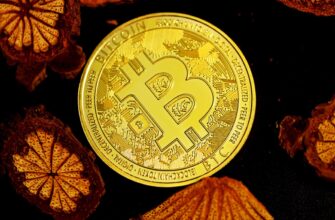- Introduction to Cryptocurrency Terminology
- Blockchain & Network Fundamentals
- Cryptocurrency Types & Assets
- Trading & Market Terms
- Wallets & Security
- DeFi & Smart Contracts
- Mining & Validation
- Frequently Asked Questions (FAQ)
- What’s the difference between a coin and a token?
- Why are private keys so important?
- How does Proof-of-Stake reduce energy consumption?
- What does “APY” mean in DeFi?
- Can cryptocurrency transactions be reversed?
- What makes NFTs valuable?
Introduction to Cryptocurrency Terminology
Navigating the complex world of digital assets requires understanding key cryptocurrency terms. This comprehensive glossary decodes over 50 essential concepts – from blockchain fundamentals to DeFi jargon – empowering you to confidently participate in the crypto revolution. Whether you’re a beginner or seasoned investor, bookmark this guide as your go-to reference.
Blockchain & Network Fundamentals
- Blockchain: A decentralized digital ledger recording transactions across multiple computers.
- Node: Any computer connecting to a blockchain network to validate transactions.
- Consensus Mechanism: Protocol ensuring network agreement on transaction validity (e.g., PoW, PoS).
- Distributed Ledger: Database shared across network nodes without central control.
- Fork: Protocol change creating divergent blockchain paths (hard fork = permanent split).
Cryptocurrency Types & Assets
- Altcoin: Any cryptocurrency alternative to Bitcoin (e.g., Ethereum, Litecoin).
- Stablecoin: Crypto pegged to stable assets like USD (e.g., USDT, USDC).
- Token: Digital asset built on existing blockchains (ERC-20 tokens on Ethereum).
- NFT (Non-Fungible Token): Unique digital asset representing ownership of items.
- Governance Token: Grants holders voting rights in decentralized protocols.
Trading & Market Terms
- Fiat: Government-issued currency (USD, EUR) used to buy crypto.
- Market Cap: Total value of all coins in circulation (Price x Circulating Supply).
- Bull/Bear Market: Sustained upward/downward price trends.
- HODL: Slang for holding crypto despite volatility (originated from “hold” misspelling).
- Whale: Entity holding large crypto amounts capable of moving markets.
Wallets & Security
- Hot Wallet: Internet-connected crypto storage (convenient but less secure).
- Cold Wallet: Offline storage (hardware/paper wallets) for maximum security.
- Private Key: Secret code granting access to cryptocurrency holdings.
- Seed Phrase: 12-24 word backup restoring wallet access if lost.
- 2FA (Two-Factor Authentication): Extra security layer beyond passwords.
DeFi & Smart Contracts
- DeFi (Decentralized Finance): Financial services without intermediaries using blockchain.
- Smart Contract: Self-executing code automating agreements on blockchain.
- DApp (Decentralized Application): Open-source app running on blockchain networks.
- Yield Farming: Earning rewards by lending crypto via DeFi protocols.
- Liquidity Pool: Crowdsourced crypto funds enabling decentralized trading.
Mining & Validation
- Mining: Process validating transactions and creating new coins via computational work.
- Proof-of-Work (PoW): Consensus requiring miners to solve complex puzzles (Bitcoin’s model).
- Proof-of-Stake (PoS): Consensus where validators stake coins to verify transactions (Ethereum 2.0).
- Hash Rate: Measurement of computational power securing a PoW blockchain.
- Gas Fee: Payment for executing transactions on networks like Ethereum.
Frequently Asked Questions (FAQ)
What’s the difference between a coin and a token?
Coins (like Bitcoin) operate on their own blockchain, while tokens (like UNI) are built on existing blockchains and represent assets or utilities.
Why are private keys so important?
Private keys mathematically prove ownership of crypto assets. Losing them means permanent loss of funds, while compromising them enables theft.
How does Proof-of-Stake reduce energy consumption?
PoS replaces energy-intensive mining with validation based on staked coins, using ~99% less energy than Proof-of-Work systems.
What does “APY” mean in DeFi?
Annual Percentage Yield (APY) shows compounded returns from DeFi activities like liquidity provision or staking, often higher than traditional finance.
Can cryptocurrency transactions be reversed?
Generally no – blockchain transactions are immutable. Some centralized exchanges may reverse internal transfers, but on-chain transactions are permanent.
What makes NFTs valuable?
NFTs derive value from digital scarcity, verifiable ownership, creator reputation, utility (e.g., game items), and community perception.








